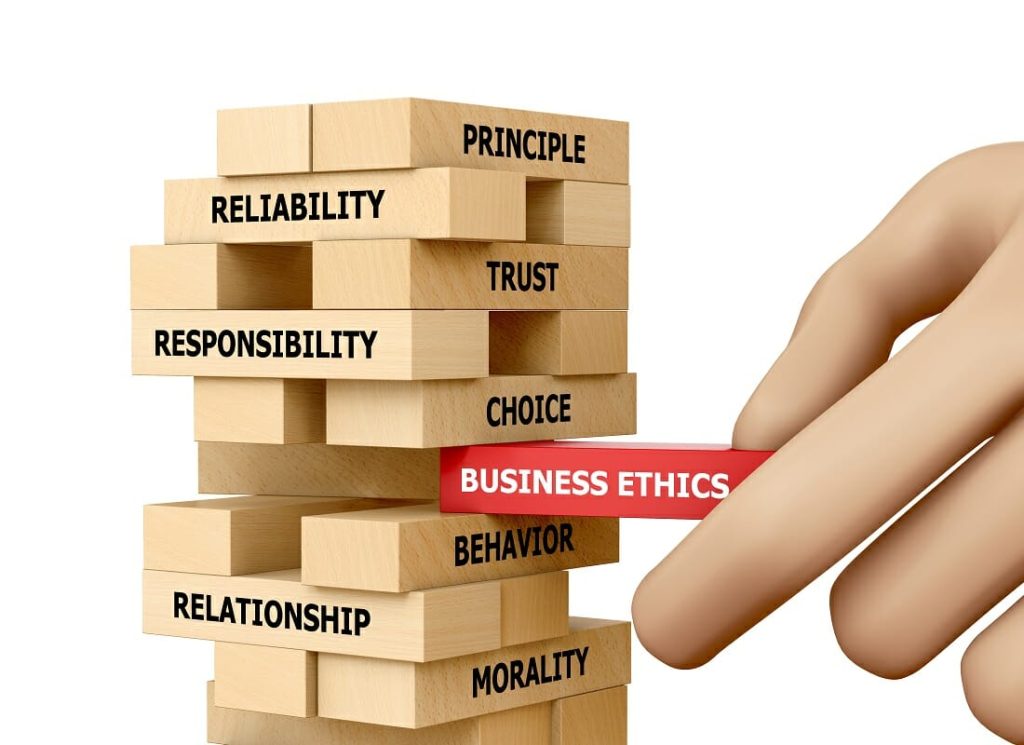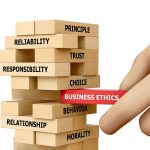Researching ethical investments means examining both company ethics and investment performance. Let’s start with ethics.

Perusing Corporate Websites
It seems like every corporate website, these days, has a section on sustainability. But can you believe what you read? When are a company’s practices truly sustainable, and when is the promotion of sustainability just a public relations strategy? Let’s examine how you can get to the truth.
If you want to invest in individual stocks, company websites aren’t a bad place to start your research. Publicly traded companies generally have two websites – a consumer-focused website and an investor-focused website. The investor-oriented site is where you’ll most likely find the information you seek.
Here are some examples of the types of information you’re likely to find:
- Community Impact
Walmart states, “we believe in a philosophy of operating globally and giving back locally. . . . [we help] to provide financial and volunteer support to more than 100,000 charitable and community-focused organizations.” - Commitment to Workers
Google states, “We provide a standard package of fringe benefits, but on top of that are first-class dining facilities, gyms, laundry rooms, massage rooms, haircuts, carwashes, dry cleaning, commuting buses – just about anything a hardworking employee might want.” - Environmental Responsibility
Clorox states, “The Clorox Company is committed to minimizing hazardous waste in its facilities. We ensure that any waste that is generated is properly handled by approved vendors and that it is properly tracked throughout the process.” - Human Rights
Gap states, “Gap Inc. seeks to ensure that the people working at various points along the supply chain are treated with fairness, dignity and respect – an aspiration that is born out of the belief that each life is of equal value, whether the person is sitting behind a sewing machine at a factory that produces clothes for Gap Inc., working at one of our stores, or wearing a pair of our jeans.”
Be cautiously optimistic, though: companies know that by promoting the ways that they protect the environment, benefit the communities where they operate and more, they may attract increased numbers of customers and command higher prices for their products. So it’s safe to assume that if a company has any ethical practices, whatsoever, it will promote them on their website. Unfortunately, it’s also true that companies that aren’t particularly ethical sometimes cover up, or stretch, the truth to promote a positive image of themselves. That’s why you shouldn’t rely, entirely, on what a company says about itself on its website – you should verify the information with reliable third parties. For example, look for news articles on the company’s activities, and make sure that the articles haven’t just relied on the company’s own press releases and internal data as sources.
Screening Tools
There are also websites and companies that will help you screen for socially responsible investments. They’ve done the hard work for you and can save you some time. Here are some examples.
- The American Customer Satisfaction Index (ACSI) is not specifically geared toward socially responsible investors, but it’s a useful tool for locating companies that customers are happy with and, that, consequently, are probably doing well financially. The ACSI evaluates more than 225 companies in 47 household consumer industries, looking at customer expectations, perceived value, perceived quality, customer complaints and customer loyalty to determine how satisfied customers are with a company.
- The Social Funds website’s Corporate Research Center lets users search for companies by name to find independently produced social responsibility profiles of those companies. For example, the site will help you locate a report on Amazon produced by Calvert (a socially responsible investment company). Site visitors will also find recent news related to sustainable investing.
- The Global Reporting Initiative (GRI) website gathers corporations’ own corporate social responsibility reports. GRI developed a sustainability reporting framework to guide companies on the issues the public may want to know about, such as the monetary value of any environmental fines a company has paid, the number of company contracts that have undergone human rights screening and the percentage of employees covered by collective bargaining agreements.
You can also use the list of companies that make up a socially responsible mutual fund, or ETF, as a starting point to select individual stocks.
if you’re looking for socially responsible mutual funds, a number of screening tools will help you find the right fund to achieve your goals. Exclusionary screens weed out companies, and funds, which invest in things you don’t like, while inclusionary screens find companies, and funds, that invest in causes you support.
- Calvert’s Know What You Own service lets users look up any mutual fund (not just Calvert funds), choose an issue that’s important to them and then see which companies in that fund (if any) do not meet their criteria.
- The Calvert Social Index starts with the 1,000 largest companies in the United States by market capitalization, and narrows down the list by evaluating each company’s performance in the areas of government and ethics, environment, workplace, product safety and impact, community relations, internal operations and human rights and indigenous people’s rights. The company also offers a number of other stock, bond and money market funds that are more tightly focused on specific social goals or financial goals.
- The Forum for Sustainable and Responsible Investment helps individual investors compare socially responsible mutual funds by cost, performance, screens and voting records. “Bloomberg” provides the financial performance data. Users can graphically see whether a fund excludes investments in certain categories (such as defense/weapons), seeks investments with a positive impact in certain categories (such as labor relations) or seeks to avoid poor performers in certain areas (such as human rights).
Once you’ve determined that a company meets your ethical criteria, it’s time to see if it meets your financial criteria (you could also do these steps in reverse order – start with whichever one is easier for you). You can use the same methods traditional investors do, to evaluate an investment’s financial performance, such as annual reports, prospectuses and websites like Morningstar.com.


Comments are closed